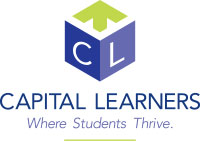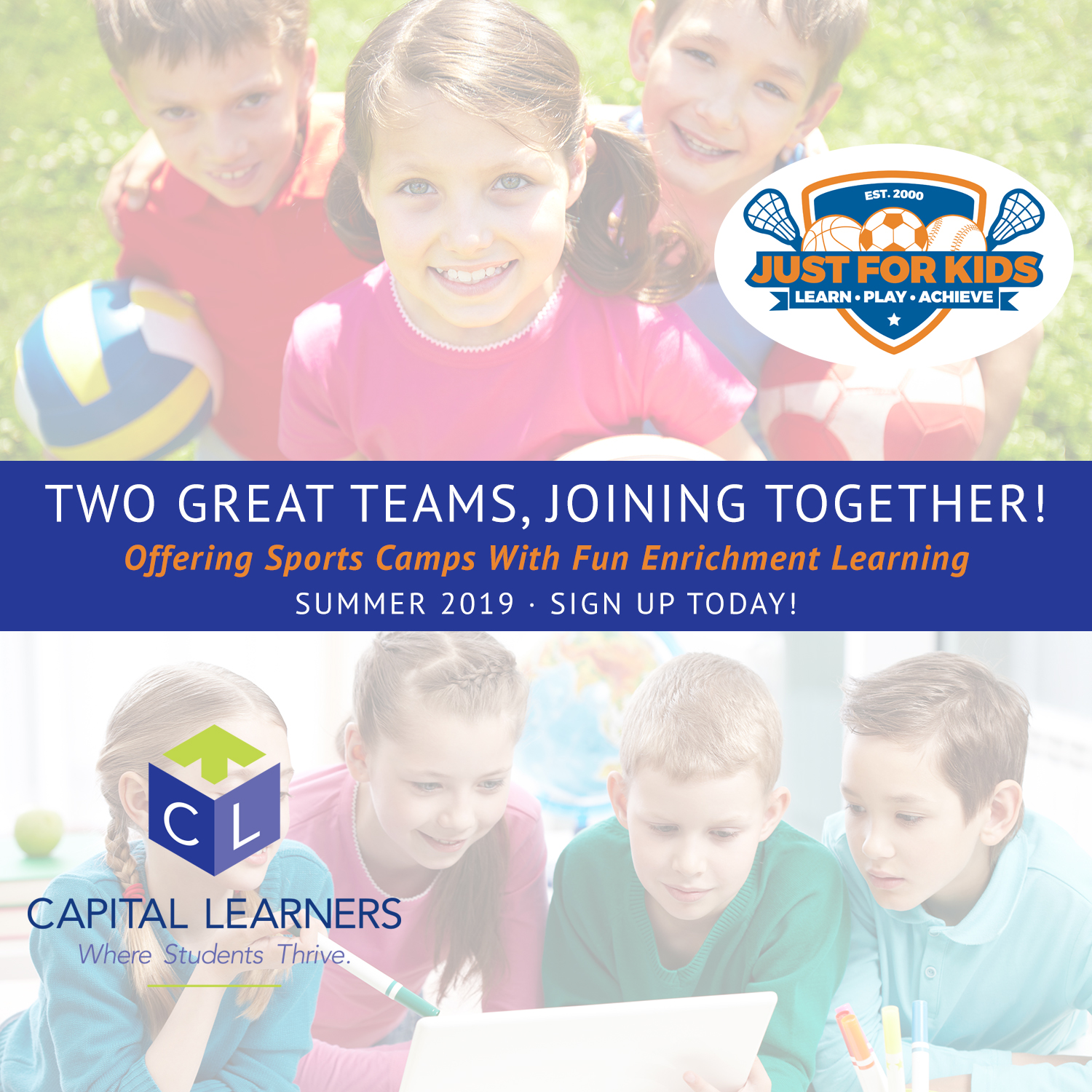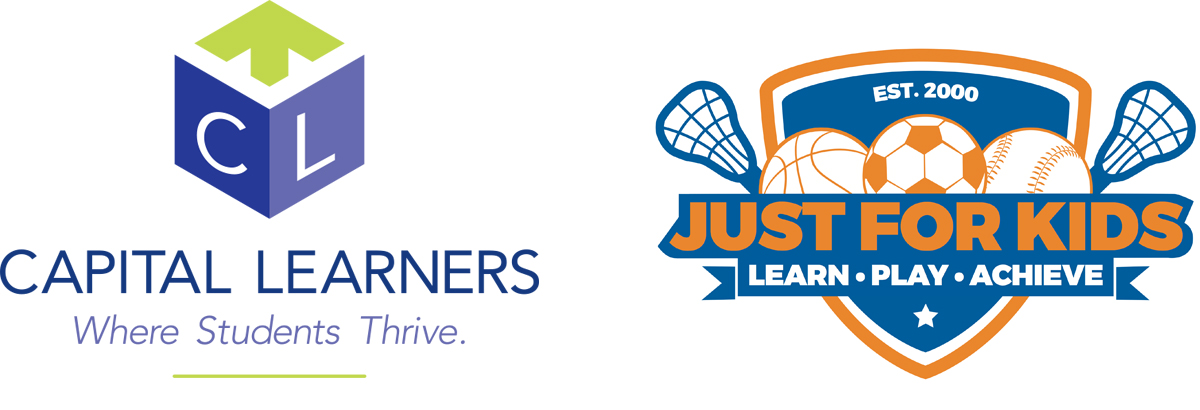Capital Learners is proud to announce a partnership with Just For Kids to offer an exciting week of sports activities, arts and crafts, and reading enrichment for your little ones this summer. We believe that nurturing both the body and mind will provide fulfillment with lasting benefits for the school year ahead.
Just For Kids is gearing up for an exciting summer of fun, games, and more. Activities include: sports and movement, games, arts & crafts and free time.
Dates
June 10th-June 14th
June 17th- June 21st
June 24th-June 28th
July 8th- July 12th
*no camp the week of July 4th
9:00am – 1:00pm
Ages: 3-9 years old
Two groups: 3-5 and 6-9 years old
$350/week or register for all for 4 weeks at $299 per week
Additional 15% sibling discount offered
Drop in Cost: $70 per day by emailing info@justforkidsdc.com
Register for these events soon! Spaces are limited! http://www.justforkidsdc.com/camps/





